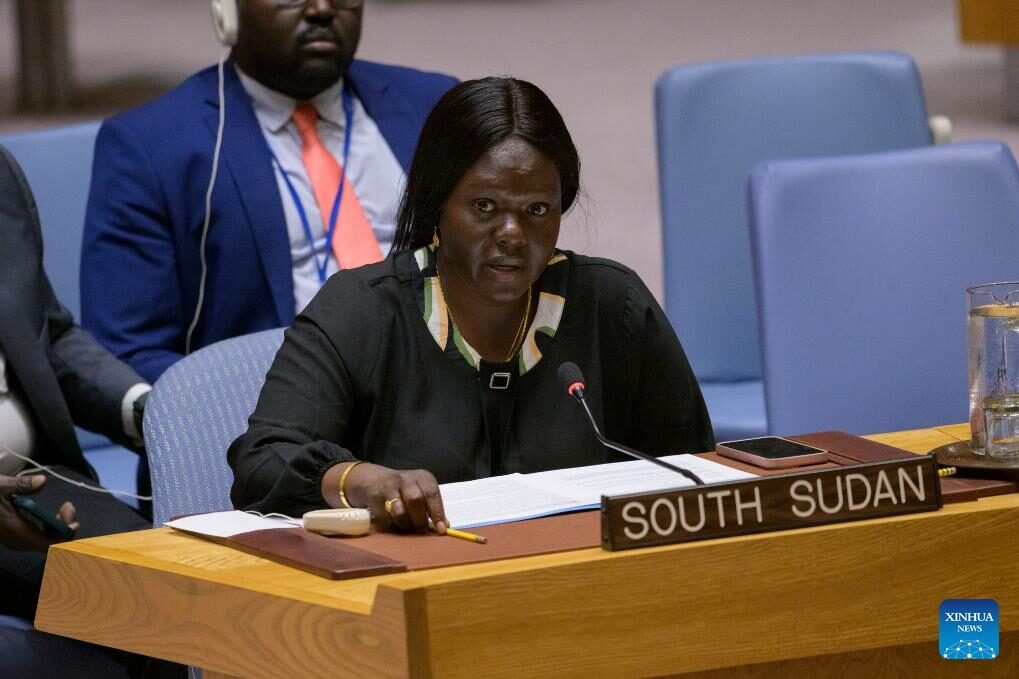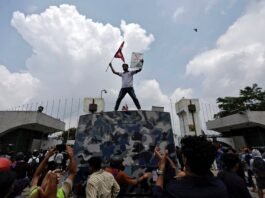Introduction to the Security Council and Its Role in South Sudan
The United Nations Security Council plays a pivotal role in maintaining international peace and security, particularly in regions experiencing conflicts such as South Sudan. Established under the UN Charter, the Council is tasked with identifying threats to peace and enacting measures to address them, including sanctions, peacekeeping operations, and mediation efforts. The situation in South Sudan, which has faced prolonged instability and conflict since its independence in 2011, has prompted the Security Council to take significant action to stabilize the region.
In response to the persistent violence and humanitarian crises in South Sudan, the Security Council established the Sanctions Committee under Resolution 2206 in March 2015. This resolution aimed to impose targeted sanctions and arms embargoes to mitigate the escalating conflict and protect civilians. The sanctions committee monitors the implementation of these measures and provides recommendations on how best to address violations and ensure compliance. The Committee’s actions underscore its commitment to facilitating dialogue and promoting peace while holding accountable those who threaten stability within South Sudan.
As the situation in South Sudan remains fluid, the Security Council’s role continues to be vital in promoting diplomatic solutions. The September 3, 2025, meeting highlighted the need for continued engagement with the South Sudan Panel of Experts, which provides critical analysis and recommendations to aid the Council in its decision-making. The collaboration between the Sanctions Committee and the Panel of Experts reflects a comprehensive approach to addressing the multifaceted challenges facing South Sudan. Through these efforts, the Security Council aims to support the country’s path to peace and stability, thus contributing to regional and global security objectives.
The 2025 Meeting: Key Participants and Objectives
The meeting held on September 3, 2025, marked a significant gathering in the ongoing efforts to address the challenges faced by South Sudan. Key participants included members of the Security Council Sanctions Committee, along with the South Sudan Panel of Experts. This convergence of expertise aimed to facilitate a robust dialogue regarding the implementation of existing sanctions and the broader framework surrounding resolution 2781 (2025).
Among the notable attendees were representatives from various nations that have shown vested interest in the security and humanitarian situation in South Sudan. These representatives played a critical role in reaffirming their commitments, ensuring that the sanctions are effectively applied to individuals and entities that undermine peace and stability in the region. The panel of experts, tasked with monitoring and evaluating compliance with sanctions, provided insights into recent developments, highlighting both challenges and progress made in the enforcement of measures.
A primary objective of the meeting was to enhance understanding of the panel’s workplan and its alignment with resolution 2781. The coordinator’s briefing was pivotal in outlining the panel’s strategies for improvement, recommendations for measures to reinforce sanction effectiveness, and actionable steps to foster a collaborative environment among member states. Emphasis was placed on the critical nature of the committee and panel’s partnership, as it serves as a mechanism to address issues surrounding conflict, governance, and humanitarian concerns in South Sudan.
The discussion reiterated that cooperation between the Security Council Sanctions Committee and the South Sudan Panel of Experts is essential for advancing peace efforts. By promoting a unified approach, the meeting sought to ensure that all participants remained engaged and aligned, ultimately working towards the broader goal of sustainable peace and stability in South Sudan.
Panel of Experts: Roles, Responsibilities, and Future Reports
The Panel of Experts on South Sudan, appointed on July 1, 2025, plays a crucial role in supporting the Security Council Sanctions Committee. Their responsibilities are framed within a comprehensive workplan designed to enhance the effectiveness of actions aimed at stabilizing South Sudan. This panel operates under the auspices of UN resolutions and sanctions regimes, focusing primarily on issues related to the arms embargo, financial sanctions, and asset freezes targeting individuals and entities that threaten the peace and security of South Sudan.
The panel’s responsibilities include investigating sanctions violations, gathering relevant information, and analyzing the infrastructure conducive to such violations. The experts are mandated to closely monitor the implementation of the sanctions and provide recommendations for improvement. This synergy between the panel and the Security Council allows for a targeted approach in addressing the ongoing challenges faced by South Sudan, ensuring that the measures are both adaptive and responsive to the evolving situation on the ground.
As per the newly established workplan, the panel is expected to deliver interim and final reports, along with monthly updates, to keep the Security Council apprised of significant developments in South Sudan. These reports are fundamental for the Council as they inform decisions on adjusting or reinforcing sanctions based on the ground realities. The interim reports serve as check-ins on ongoing operations, while the final reports provide a comprehensive analysis of the effectiveness of the sanctions regime and potential areas for improvement.
The importance of these regular updates cannot be overstated; they ensure that the Security Council remains engaged and informed about the status of its mandates and the implications thereof. The collaboration between the Panel of Experts and the Security Council serves as a vital mechanism in upholding international peace and security with respect to South Sudan.
Conclusion: The Path Forward for South Sudan and the Importance of Continued Oversight
As South Sudan continues to navigate its complex socio-political landscape, the role of international oversight remains crucial. The Security Council Sanctions Committee, in its collaboration with the Panel of Experts on South Sudan, acts as a significant mechanism aimed at addressing the multifaceted challenges faced by the nation. These challenges include ongoing violence, political instability, and the dire humanitarian situation impacting millions of citizens. With the panel’s expertise and the committee’s mandate, there is an opportunity to impose targeted measures that promote accountability and deter actions undermining peace efforts.
The anticipated outcomes from this collaboration are vital for shaping future resolutions and actions regarding South Sudan. By closely monitoring the developments on the ground and leveraging the findings of the panel, the Security Council can make informed decisions that reflect the current realities. Such measures may involve adjusting existing sanctions, addressing human rights violations, or providing avenues for dialogue among conflicting parties. This dynamic interaction aims to foster a conducive environment for sustainable peace and development.
Moreover, the focus on continued oversight is essential, as it signifies the international community’s commitment to South Sudan’s stability. The implementation of targeted sanctions and other responsive actions will require a sustained effort and vigilance. This not only reflects on the immediate dynamics but also contributes to long-term resolutions that support democracy, governance, and the welfare of the South Sudanese people. Continued engagement from international actors will be a determining factor in mitigating the risks of relapse into conflict and ensuring the protection of human rights. Future progress hinges on unwavering support and proactive measures that facilitate dialogue and inclusive governance.




